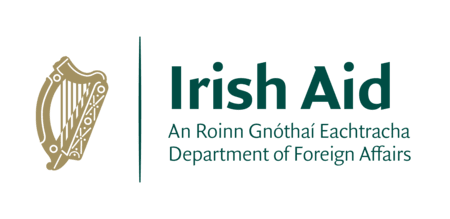 Stories
Stories
September 29, 2024 • 3 min read
In Sierra Leone, the small-scale fishing industry provides food security and employment opportunities to thousands of people living in coastal communities. The sector has generated an estimated 500,000 jobs and processes 100,000 metric tons of fish every year. However, small-scale fishers face a myriad of challenges, including limited access to storage facilities and post-harvest materials.
Strengthening Small-Scale Fisheries
Poor infrastructure prevents small-scale fisheries from tapping into the Blue Economy’s full potential. With generous funding from the Ireland Civil Society Partnership (ICSP) for a Better World programme, GOAL is strengthening small-scale fisheries in Sierra Leone.
Many small-scale fisheries don’t have access to sustainable, reliable energy sources. As a result, 40% of all catches spoil during processing and cannot be sold. This contributes to low productivity and income for fishers trying to support themselves and their families.
Through our Resilience of the Blue Economy programme, supported by Irish Aid and the Government of the Faroe Islands, GOAL staff distributed freezers, stabilisers, and ice boxes to seven fishing communities in Western Area, Sierra Leone.
Moa Wharf, King Jimmy, Tambakula, Wan Pole, Shalla Water, Capital, and Baw Baw received a total of twenty-five freezers, twenty-five stabilizers, and ninety-five ice boxes.

Hawanatu, a small-scale fisherwoman in Sierra Leone who received an ice box from GOAL.
Hawanatu’s Story
Hawanatu is a fisherwoman living in Baw Baw, situated along Freetown Peninsula. She supports her three children with the income she earns from fishing. However, post-harvest storage has been a consistent challenge for Hawanatu.
Before GOAL intervened, Hawanatu would try to sell her entire catch in one day. If she couldn’t, then the leftover fish would spoil; and without adequate storage, Hawanatu couldn’t save her leftover fish to sell on days when fishing wasn’t possible. “The rainy season is most challenging,” she explains, “because boats do not go to sea to fish.”
Thanks to generous support from Irish Aid and the Faroe Islands, Hawanatu received training on effective fish handling, processing, and storage. “I did not know how to preserve my fish because I did not have an ice box,” she admits. “I used just an open rubber bowl and most times, my fish [ended] up going bad. But with this ice box, I am now keeping my fish even when sales are not booming.”
Promoting Financial Security
GOAL is also facilitating the use of Community Savings & Loan Associations (CSLAs), to promote financial security in vulnerable fishing communities. By empowering vulnerable communities to save money and effectively manage their finances, small-scale fishers can afford to purchase additional storage facilities as their productivity improves.
These mechanisms also ensure that households supported by small-scale fishing can always afford necessities, even when they’re unable to earn an income from fishing.
In Sierra Leone, GOAL implements programmes in partnership with local and national authorities. This is to ensure that our activities complement and support the government’s strategic plans in a sustainable manner.
“We are having so [many] post-harvest losses in the fisheries industries,” said Sierra Leone’s Deputy Minister of Fisheries and Marine Resources, Haja Isata Abdulai. “But for GOAL to come and then be a referee for us to reduce the harvest of post-harvest loss, I think it’s a very good thing and something in the right direction.”
Learn more about GOAL and Irish Aid.

